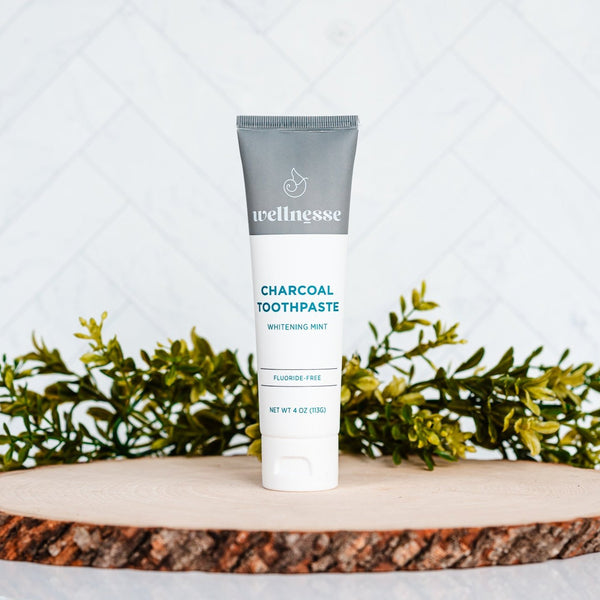Oral health is intricately connected to overall body health, as issues in the mouth can often lead to or exacerbate systemic conditions. The mouth is the gateway to the rest of the body, and the relationship between oral health and overall health cannot be understated.
This concept finds its roots in the "focal infection theory", which suggests that infections in the mouth can affect the entire body. Dr. Weston Price, a pioneering researcher in dental health in the early 20th century, substantiated this theory through extensive experiments. He discovered that root canal-treated teeth could contribute to systemic diseases due to harmful microbes that linger in the teeth, even post-extraction.
For many years, mainstream dentistry dismissed the focal infection theory, viewing the mouth as separate from the rest of the body. However, there has been a paradigm shift due to the emerging research in recent years.
Hundreds of papers explored the possible links between oral and systemic diseases. Since 1989, over 1,000 publications have investigated these connections, identifying associations between oral diseases and health conditions such as heart disease, stroke, inflammation, diabetes, liver disease, rheumatoid arthritis, and low birth weight in infants. More health professionals are understanding and talking about the role that oral health plays in overall health, reaffirming the importance of good dental care.
One of the most dynamic areas of current research is the relationship between gum disease and cancer.
How Is Gum and Oral Health Connected to Cancer?
Periodontal disease, also known as gum disease, is a broad term that can include anything from minor inflammation of the gums to infections severe enough to result in tooth loss, according to the National Institutes of Health
A new study published in Cancer Epidemiology, Biomarkers & Prevention, a journal of the American Association for Cancer Research (AACR), showed that periodontal disease was associated with increased risk of several types of cancer in postmenopausal women.
Seeking to understand how periodontal disease can affect cancer risk, Dr. Wactawski-Wende and colleagues conducted a cohort study of 65,869 women aged 54 to 86 between 1999 and 2013. The study showed that a history of periodontal disease was associated with a 14% higher risk of developing any cancer. The strongest association was for cancer of the esophagus, which was more than three times more likely in women with periodontal disease than women who did not report periodontal disease. Lung cancer, gallbladder cancer, melanoma, and breast cancer were also associated with higher risk.
Recent research published in the Journal of the National Cancer Institute revealed that severe gum disease, known as periodontitis, significantly increases the risk of developing cancer, particularly lung and colorectal cancers. Patients with periodontitis were found to have a 24% higher risk of developing cancer compared to those with mild gum disease or healthy gums.
Additionally, the study reported that edentulous (toothless) patients had a 28% greater overall risk of cancer and an 80% higher risk of colon cancer. Even non-smokers with severe periodontal disease had more than double the risk of lung cancer.
Complementing these findings, other recent studies have examined the oral microbiome—the eco-system of bacteria living in the mouth—and its relationship with cancer risk. A study published in Cancer Research found an association between specific oral bacteria and the risk of esophageal cancer. Similar research has linked distinct microbial communities with head and neck cancers, colorectal cancer, pancreatic cancer, and stomach cancer.
Studies like these add to a growing body of evidence that oral health is closely linked to overall health.
What Should We Do?
Maintaining healthy teeth and gums could reduce your risk of developing certain cancers. Here are 3 easy tips.
1. Regular Brushing and Flossing - Did you know that even missing one night of brushing and flossing can lead to an amazon of bacteria and biofilm on your teeth? Keep your oral care routine as a non-negotiable in your daily habits. Expert tip: Brush with non-fluoride toothpaste with hydroxyapatite and xylitol to maintain a healthy oral microbiome.
2. Whole Foods Diet - Going back to the basics of Weston A Price, processed food changes the biochemistry in the mouth, which we have to counteract. Remove processed foods as much as possible and aim for a diet high in whole and real food.
3. Incorporate Oral Probiotics - You can also include fermented foods such as sauerkraut, kimchi, kefir, kombucha, or yogurt. Keeping that delicate balance of good vs bad bacteria in the mouth
Ultimately, the key to good overall health could be linked to good oral care and how healthy your gums and mouth are. Research continues to show how the mouth is not separate from the rest of the body and the connection can be way more powerful than we realize.
To continue on a path of healthy oral care, check out the clean product line from Wellnesse.











